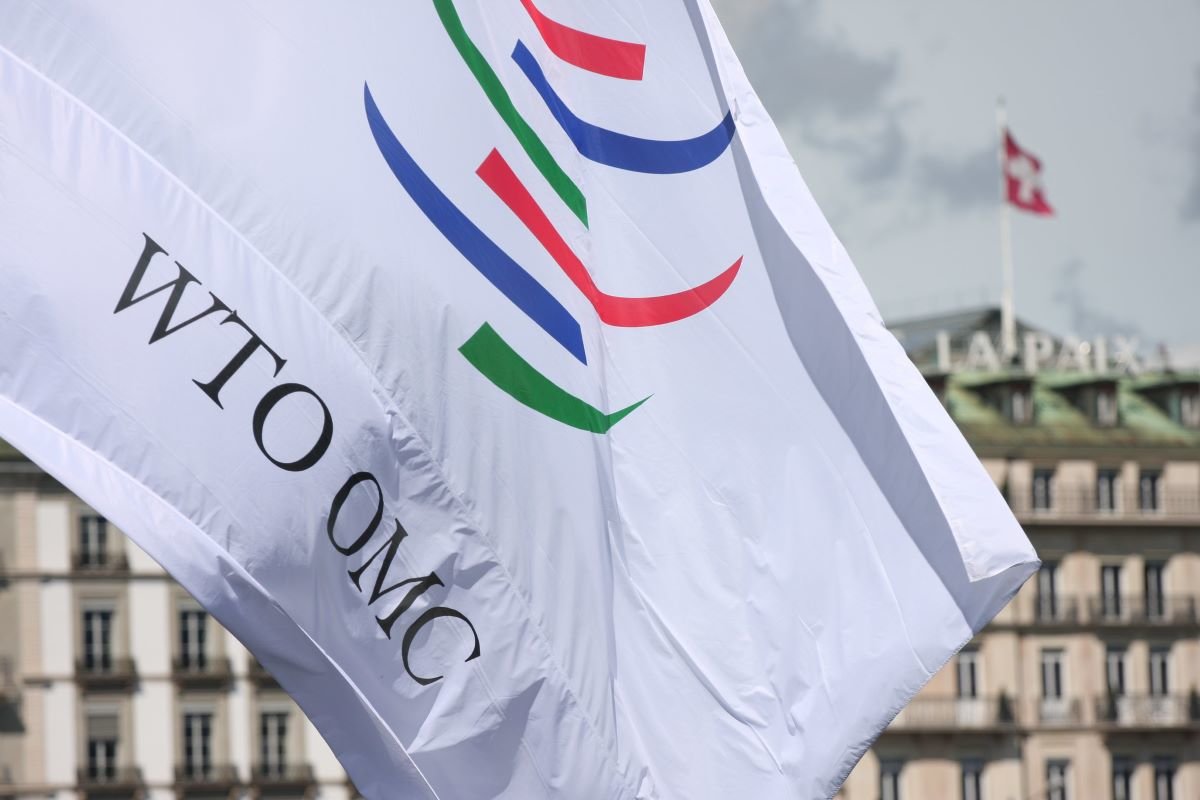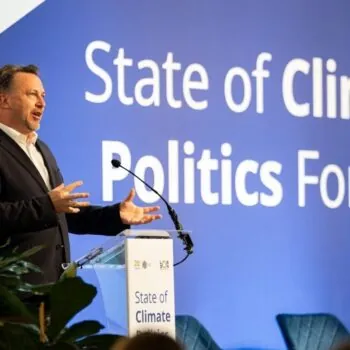The WTO’s 12th Ministerial Conference (MC12) has been postponed. The decision came just days before it was due to take place (30 November – 3 December), due to rising cases of the new COVID-19 variant and the closure of several international travel routes.
For some, the news might have come with a sigh of relief. The weeks before the Summit were dominated by clashes over India and South Africa’s proposal for a TRIPS vaccine waiver, all while wider multilateral discussions on trade and health appeared far from reaching a point of conclusion – dangerous optics for the WTO during a resurgent pandemic.
Despite this, behind the scenes, there was also a palpable sense of Trade Ministers wanting to say and do more on climate change in the run-up to MC12. Similar to COP26, notable climate-related initiatives at MC12 would have taken the form of side agreements (or ‘plurilaterals’ in trade jargon) signed by coalitions of more willing countries. This is symptomatic of the difficult geopolitics affecting both multilateral processes, a problem that is even more acute around the WTO than the UNFCCC.
At MC12, delegations were due to discuss three Ministerial Statements aimed at better aligning the global trade system with climate and environmental goals:
- Trade and Environmental Sustainability (Over 60 signatories, including the EU, US and China) – the statement establishes five key areasfor further discussion in the Trade and Environmental Sustainability Structured Discussions (TESSD), a plurilateral forum attached to the WTO, in view of reaching concrete deliverables by MC13. This agenda includes discussing trade-related climate measures such as carbon border adjustments, lifting barriers to environmental goods, compiling best practices on circular trade and sustainable supply chains, as well as addressing the environmental impacts of relevant subsidies. However, previous plurilateral attempts to advance similar agendas have faltered before, such as the Environmental Goods Agreement in 2016. It thus remains an open question on whether these discussions can lead to tangible progress where previous negotiations have failed.
- Sustainable Plastics Trade (Over 60 signatories, co-led by Australia, Barbados, China, Ecuador, Fiji and Morocco, with other notable signatories including the EU, UK, and Russia) – this statement has been brokered through the Informal Dialogue on Plastics (IDP). Like the TESSD, the plurilateral group sets itself an agenda for 2022, aiming for outcomes ahead of MC13. These include improving transparency, building a circular economy, and capacity building for LDCs.
- Fossil Fuel Subsidies Reform (43 signatories, led by New Zealand and the Friends of Fossil Fuel Subsidy Reform, but most importantly including the EU and UK) – the headline of this statement is a commitment to phase out ‘inefficient’ fossil fuel subsidies along a clear timeline. The language is a clear continuation of the language adopted in the COP26 Glasgow Pact, and re-energises the Friends of Fossil Fuel Subsidy Reform’s campaign by broadening out to the EU and UK. Its political significance lies in creating a hook at the WTO to keep the conversation rolling in Geneva, while more substantial developments are brokered at other fora such as the G7 and G20, the OECD and the TESSD above.
In a welcome sign of the UK taking its nascent COP26 Presidency seriously, the UK was a signatory to all three statements. Most notably, the UK’s cold feet over fossil fuel subsidies reform had recently played a significant part in its decision to no longer pursue joining the New Zealand-led Agreement on Climate Change, Trade and Sustainability (ACCTS). If the UK’s position on fossil fuel subsidies has truly shifted, perhaps its position on ACCTS can also be revisited.
Despite the postponement of MC12, groups of Trade Ministers have come together around three agenda-setting documents where further work on greening trade flows will take place under separate, plurilateral workstreams. However, we still lack an overarching framework to develop a coherent green trade agenda at the WTO. Along with ensuring policy coherence, an overarching green trade framework would help ensure plurilateral agreements remain inclusive and consistent with the multilateral process. One way to advance this kind of discussion could be through the establishment of a Trade Ministers’ Coalition for Cooperation on Climate Action. Nonetheless, the three statements establish an initial green trade agenda at the WTO, which if strengthened at the postponed MC12 (likely to take place in March 2022) may set the stage for a truly ‘green MC13’ in 2023.



